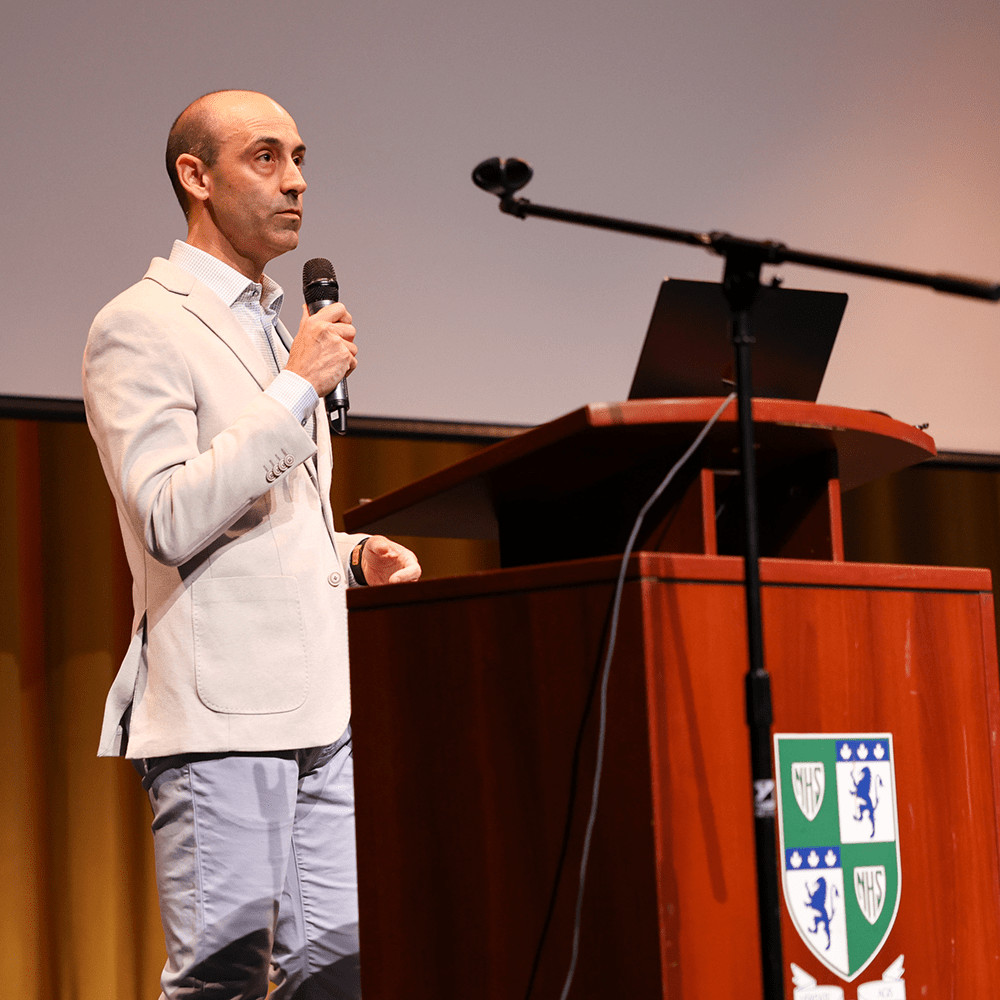When parents and teachers work together as partners with respect to the education of their students; aligned in their values, philosophies and approaches; then we observe students flourish—academically, socially and emotionally. This is our ultimate goal at GNS and as such, we aim to be responsive to our student, teacher and family educational needs, designing initiatives and plans to best support them in their teaching and learning journeys.
In my role, I get the wonderful opportunity to talk with a lot of teachers about their practice, and one goal that seems to always be top of mind for many teachers, is how best to support the diverse needs of the students in their classes, especially students with learning disorders such as ADHD. Having read quite a few of the psycheds and IEPs of our students, I noticed a name that kept coming up and thought it would be a great idea to reach out to him and ask him if he would be prepared to address our teachers and families on the topic of ADHD. And he graciously agreed!
Dr. Carlton Duff is a registered psychologist who specializes in psychoeducational and clinical intervention and assessment with youth and adults. He has trained and consulted with parent support coaches in their work with parents of children with anxiety problems and provided consultation to school counsellors and learning support teachers in their work with students.
On Tuesday, April 16, Dr. Duff addressed our Middle and Senior School teachers, and the following evening, he presented to a group of parents from across all three schools. He talked about ADHD—what it is, how it develops, what it is like to have ADHD, and most importantly how our teachers and parents can best support their students or children with ADHD. He talked about the challenges that these children have, but also their incredible strengths.
In summary, he shared that children with ADHD need structure, consistency and predictability. They do better when we focus on the desirable behaviour offering frequent praise and reward, making sure that we remain calm, and don’t resort to lecturing. He encouraged us to seek out team sports, leadership opportunities, and participation in social thinking groups for our children with ADHD, as ways to build on their strengths and support their growth areas.
Dr. Duff shared with us the following resources for our reference.
- Dr. Duff’s Presentation slides: https://tinyurl.com/mrxv4z7c
- A website on explaining ADHD to kids: https://explainingbrains.com/explaining-adhd/
- A book for kids on mindfulness and emotions: https://a.co/d/1Lfapwn
- A book on understanding ADHD for kids: https://a.co/d/gXuxqNv
- Another conceptual book on ADHD for kids: https://a.co/d/dlgbs1T
As we work together on this path of lifelong learning, I look forward to sharing more of these kinds of initiatives with our community.





